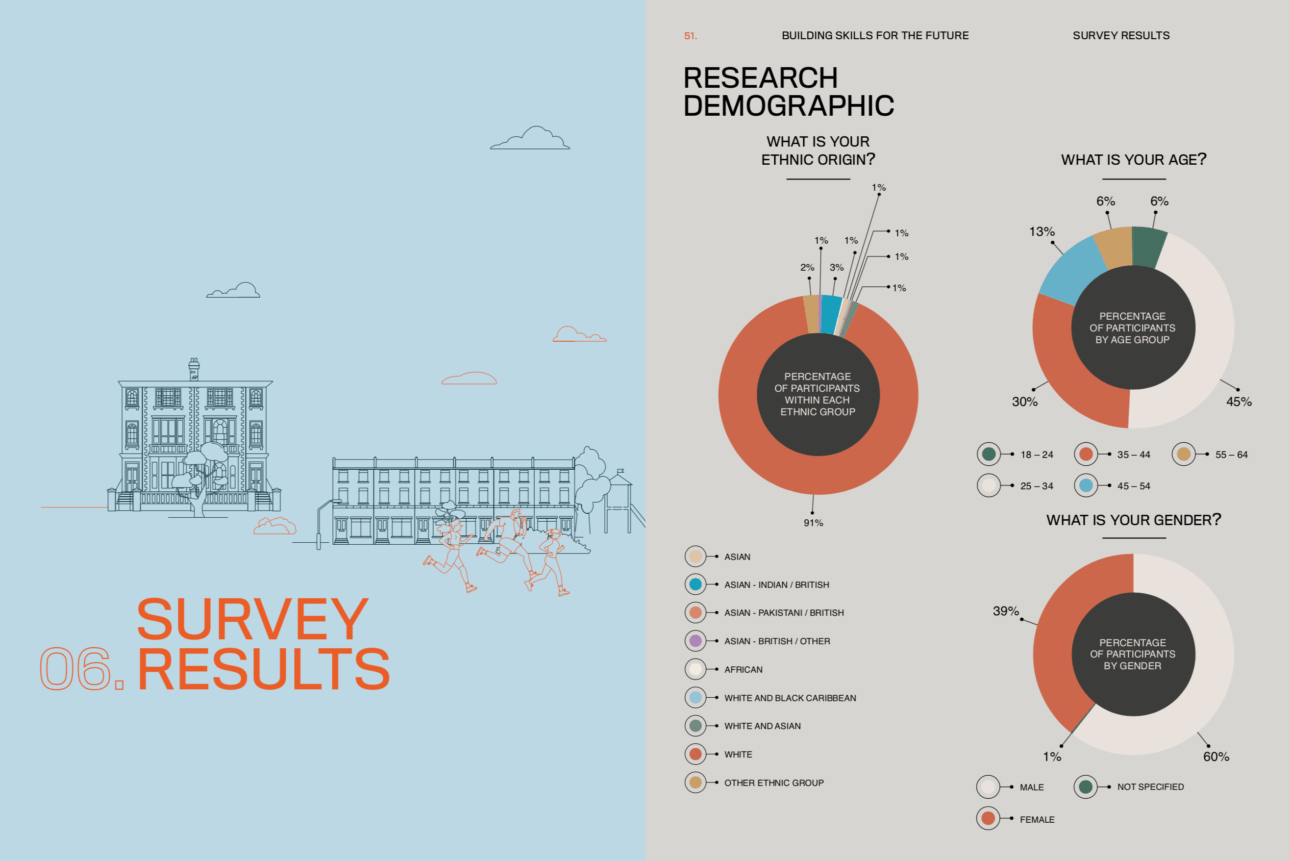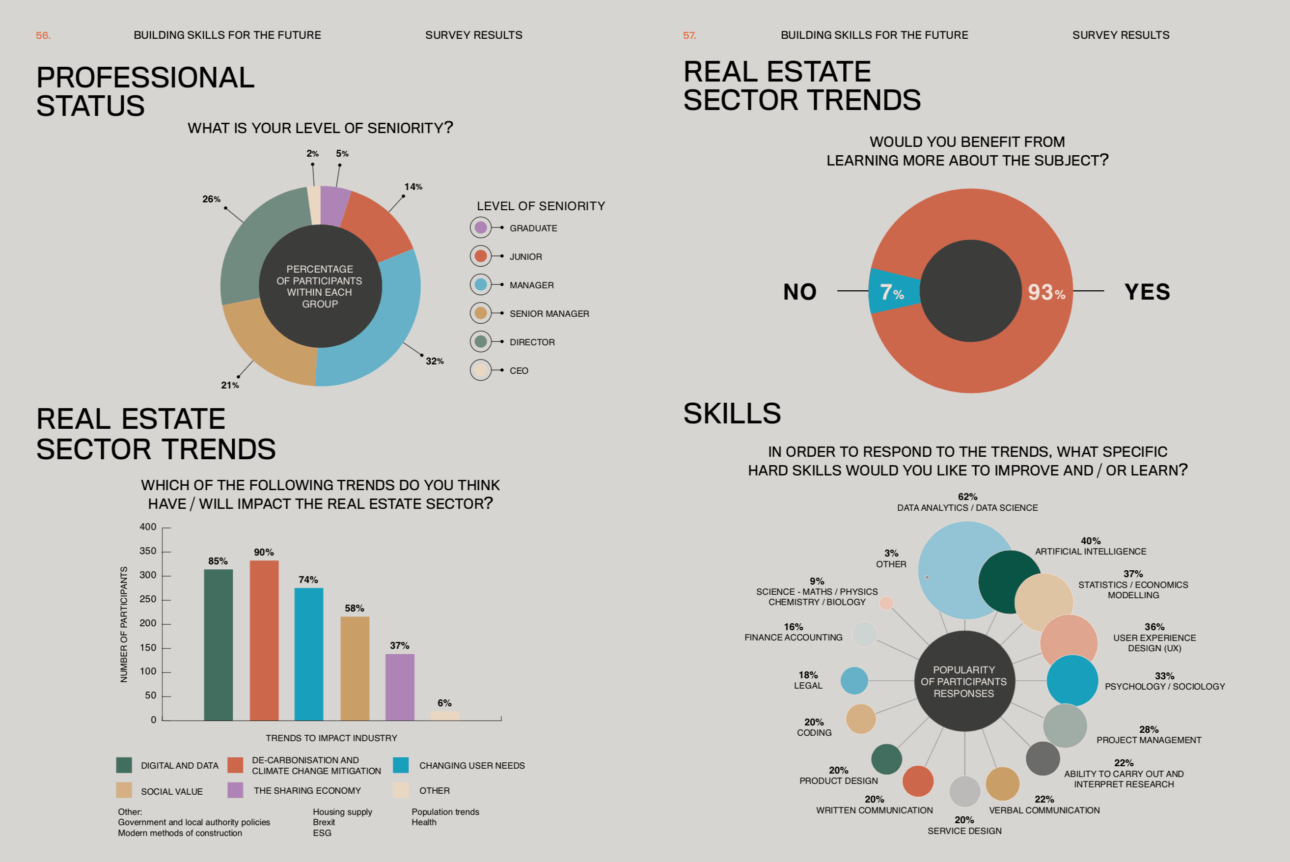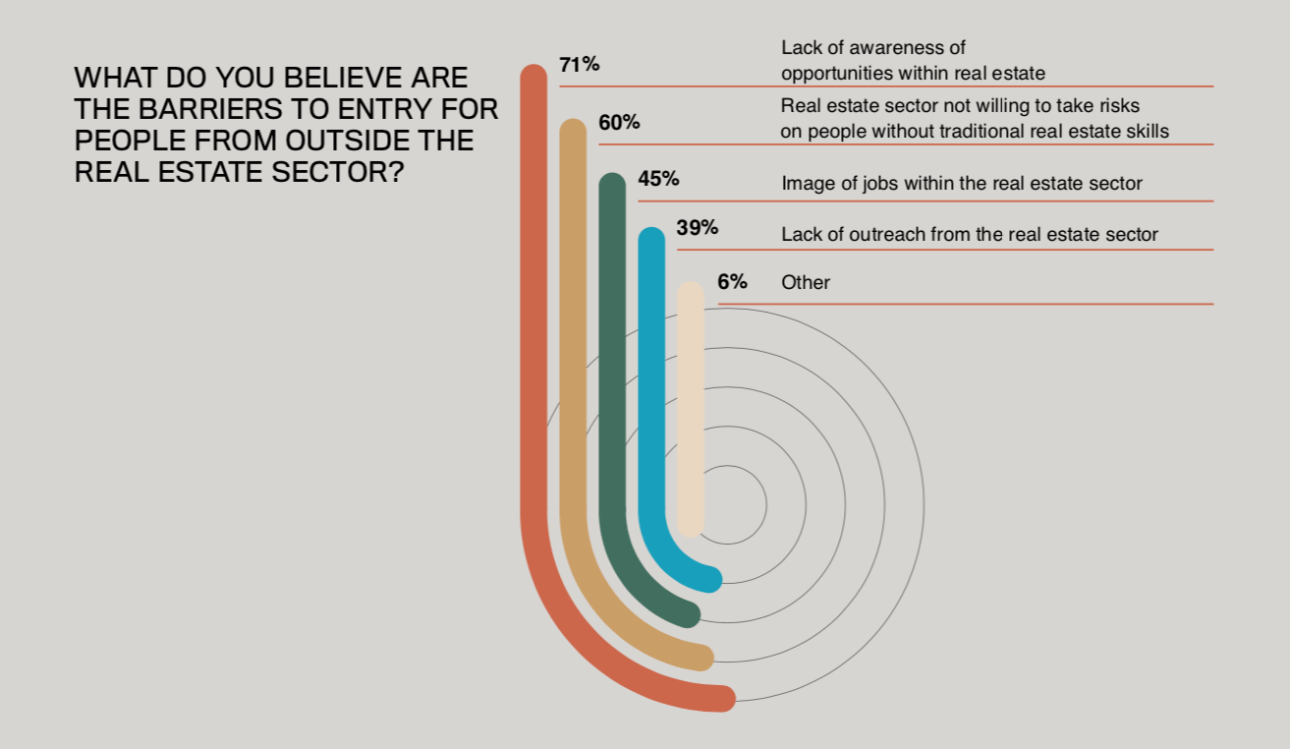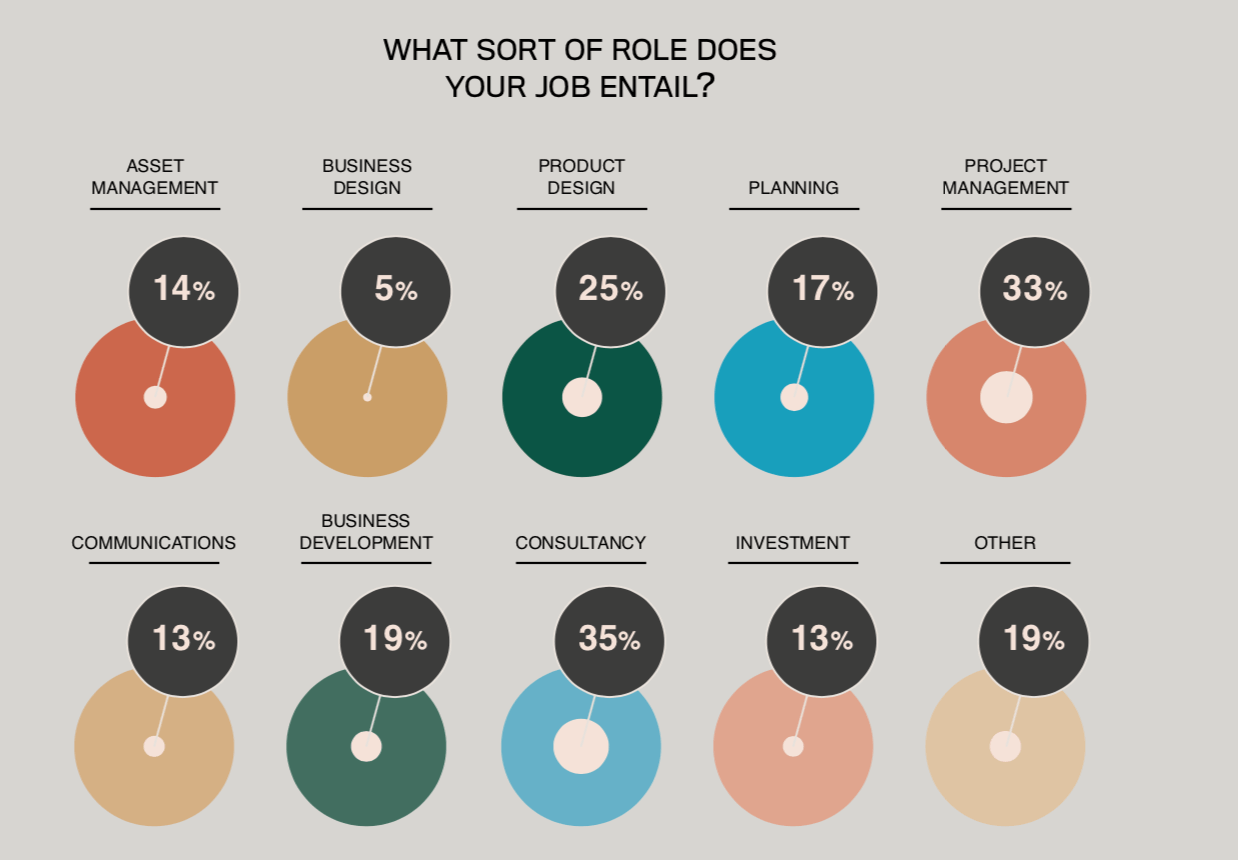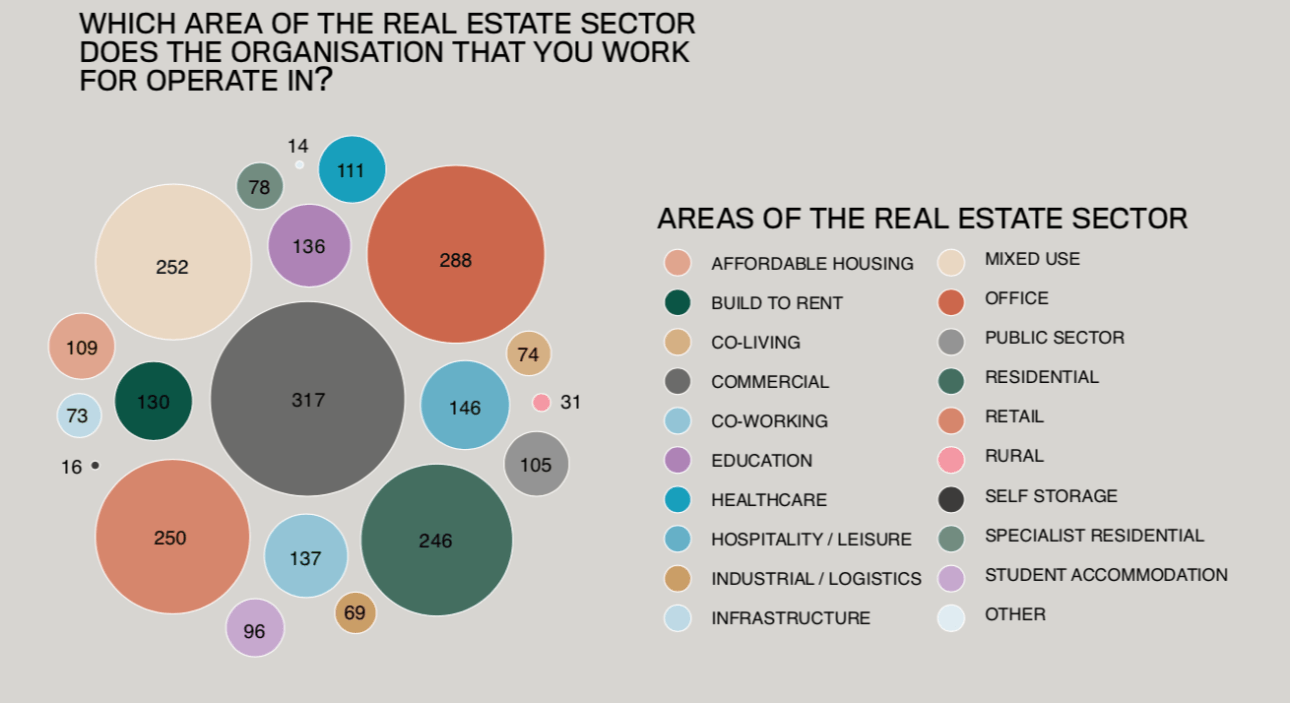What skills does the real estate sector need as we look to the future?
Client: London Property Alliance, Grosvenor, Landsec, Buro Four, HB Reavis, Macdonald & Company, Waterman Group.
Date: 2019/20
Services: Research
From late 2019, Future Places Studio undertook an online survey of the Central London real estate sector to identify:
The disruptive trends most affecting the sector.
The hard and soft skills individuals feel they need to best respond to a changing sector.
The most effective ways to develop these skills.
Whether more people from outside the sector should be recruited in, and the specific sectors recruitment should focus on.
The barriers preventing people from entering real estate from outside the sector.
The survey received 372 responses, which covered all age groups, career levels, job descriptions and different types of real estate companies.
Alongside the survey, the research includes a series of interviews with professionals across the real estate spectrum. The purpose of these interviews has been to understand the skills landscape from the perspective of individual organisations and to explore some of the wider issues influencing a company’s ability to successfully recruit new skills into the business.
The research also seeks to explore how new skills can be added to the sector which not only increases the skills diversity but also positively affects the wider diversity challenge.
KEY FINDINGS OF THE SURVEY:
The trend most likely to affect the real estate sector is the climate crisis, followed by technology and the digital world. 93% of respondents said they would benefit from learning more about these trends.
Nine out of ten respondents think the sector should recruit more people from outside the sector, with social sciences being the most popular sector to recruit people from.
Lack of awareness of jobs in real estate, and the sector not being willing to take risks, are the biggest barriers to people joining from other sectors.
Data analysis plus related skills, and skills associated with innovation, are those the majority of people want to develop to improve their contribution to the future of the sector.
The most popular way for people to develop these skills is through short courses and mentoring opportunities.
Only 9% of respondents to the industry survey were BAME (Black, Asian and Minority Ethnicities) compared to over 40% of the London population.
Email jack@futureplacesstudio.co.uk for a copy of the report.
